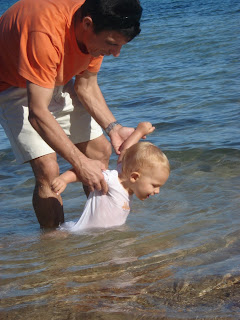 For those of you interested in the American influence on New Caledonia (which was, in truth, a bone of contention with the French government), I recommend Kim Munholland's "Rock of Contention: Free French and Americans at War in New Caledonia, 1940-1945".
For those of you interested in the American influence on New Caledonia (which was, in truth, a bone of contention with the French government), I recommend Kim Munholland's "Rock of Contention: Free French and Americans at War in New Caledonia, 1940-1945".
The following excerpts are from a review of the book by Robert Aldrich, University of Sydney in H-France Review Vol. 6 (April 2006), No. 47:
Rock of contention
"The Americans, under the command of General Patch and then Admiral Halsey, overwhelmed New Caledonia with their men and machines. The presence of tens of thousands of soldiers and their matériel, the demands they made on local accommodation, the largesse of American dollars and the military exigencies they imposed all grated on the French. De Gaulle and his comrades in London reacted angrily to what they saw as the bossiness of American officers and to what they feared was Washington’s aim of taking over the French colony at the end of the war.
The French governors, in the American perspective, placed obstacles in their way, even to the point that an American official thought that one governor ought to be charged with abetting the enemy.
The French, on their side, sometimes said that the Americans posed more of a threat to New Caledonia than did the Japanese.
In fact, as Munholland justly points out, two priorities clashed: the American determination to take whatever measures necessary to win the war in the Pacific, the French determination to keep control over New Caledonia and to retain sovereignty over their overseas empire."
The American influence on the ground
"The American presence could not but bring great changes, at least temporarily, to New Caledonia. 'One might have said the Martians had landed' one Kanak student is reported as remarking.
The population of Nouméa soared, especially as the Americans put up Quonset huts, built an airport and constructed a “mini-Pentagon” at a beachside suburb. GI’s spent dollars lavishly for food, drink and other entertainments--86 bars opened in Nouméa during the war, and by 1944, the Trade Winds bar (*) alone sold 18,000 beers and 5,100 hamburgers a day ...
Many Melanesians were astounded at the sight of African American troops in positions of responsibility (despite the segregation practiced by the US Army). Many Kanak, and Asians, found employment with the Americans, and were even paid for their work--Kanak had been required by the French to donate free labour for public works projects. Although only a quarter of the Melanesians had held paid jobs before the war, during the American years two-thirds had such an experience.
Similarly, many of the Caldoches benefited from the American presence and the opportunities it provided; the Spanish-born head of the local Communist Party (and a Republican in the Spanish Civil War) sold bootleg liquor to US soldiers for what they claimed were exorbitant prices."
* Readers may recall that we know of
someone who worked at the Trade Winds ... Lucie Agez.
My thanks once again to Marc ("Le Cagou") for sharing this with us.
 A resource we use all the time here in New Caledonia is its phonebook. It contains helpful maps that show all of Noumea's one-way streets (no other maps seem to do so!), restaurant advertisements (it is hard to know about them otherwise, strangely enough) and of course professional addresses, like doctors and dentists.
A resource we use all the time here in New Caledonia is its phonebook. It contains helpful maps that show all of Noumea's one-way streets (no other maps seem to do so!), restaurant advertisements (it is hard to know about them otherwise, strangely enough) and of course professional addresses, like doctors and dentists.












